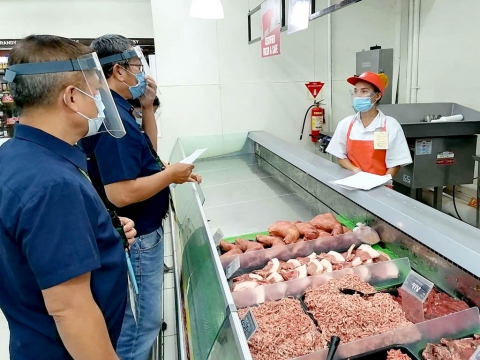Meat quality and safety remain a priority of the DA through the NMIS.
DILIMAN, Quezon City—The quality and safety of meat in the market are still top priority amid problems in animal health in the country, particularly the African swine fever (ASF), according to the National Meat Inspection Service (NMIS).
In a radio interview, Dr. Orlando Ongsotto, OIC-Deputy Executive Director for Field Operations of the NMIS, detailed the different steps their office is taking in making sure that meat safety is being maintained for the consumers.
“We coordinate closely with the different local government units (LGUs) to maintain food safety. We make sure that what is being sold in our public markets and supermarkets are at par to our national standards,” Ongsotto explained.
The veterinarian from Northern Samar is referring to the Department of Agriculture Administrative Order Nos. 5 and 6 in 2012 stating the proper hygienic handling of meat. The document narrates the process of handling meat from the storage facility to the meat inspection facility to the market, how long should it be exposed in the market during the day, and even maintaining frozen meat.
Ongsotto also mentioned that the NMIS also carefully inspects imported meat coming to the country. The said meat follows the same process as local meat in terms of safety and quality measures. In addition, these were already audited in their county of origin with the same qualifications as of our own.
“We only accept meat that were approved based on our standards. This is why we encourage our consumers to always look for the meat inspection certificate whenever they are buying meat in the market to ensure it meets our safety standards,” he added.
The said interview was aired last June 26 on the Agricultural Training Institute’s “Agri Asenso” via DZRH AM and DZRH News Television, and also livestreamed simultaneously through the ATI and DZRH Facebook pages.

